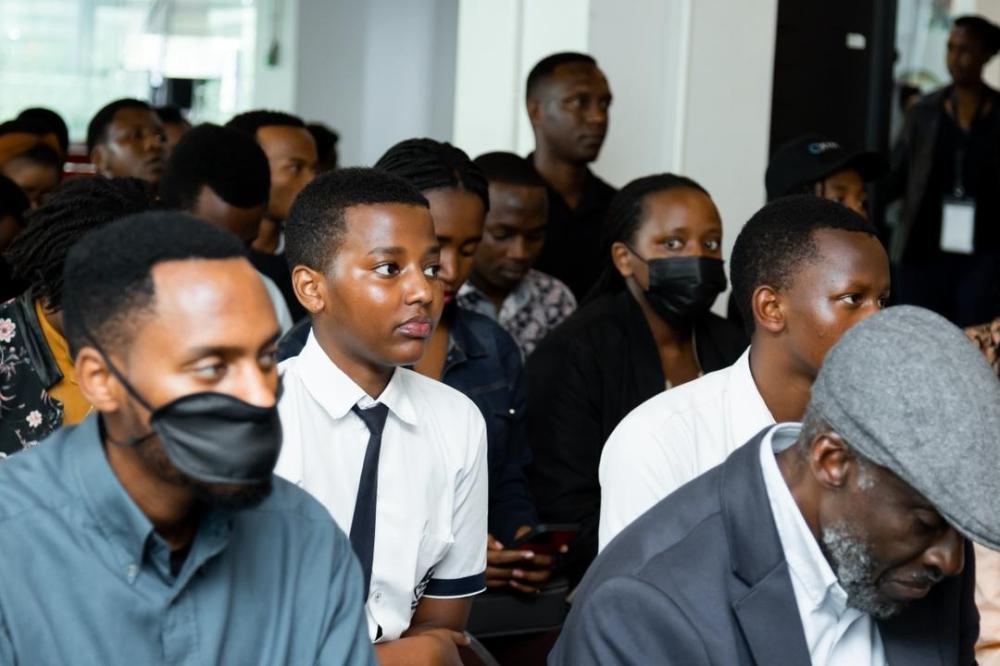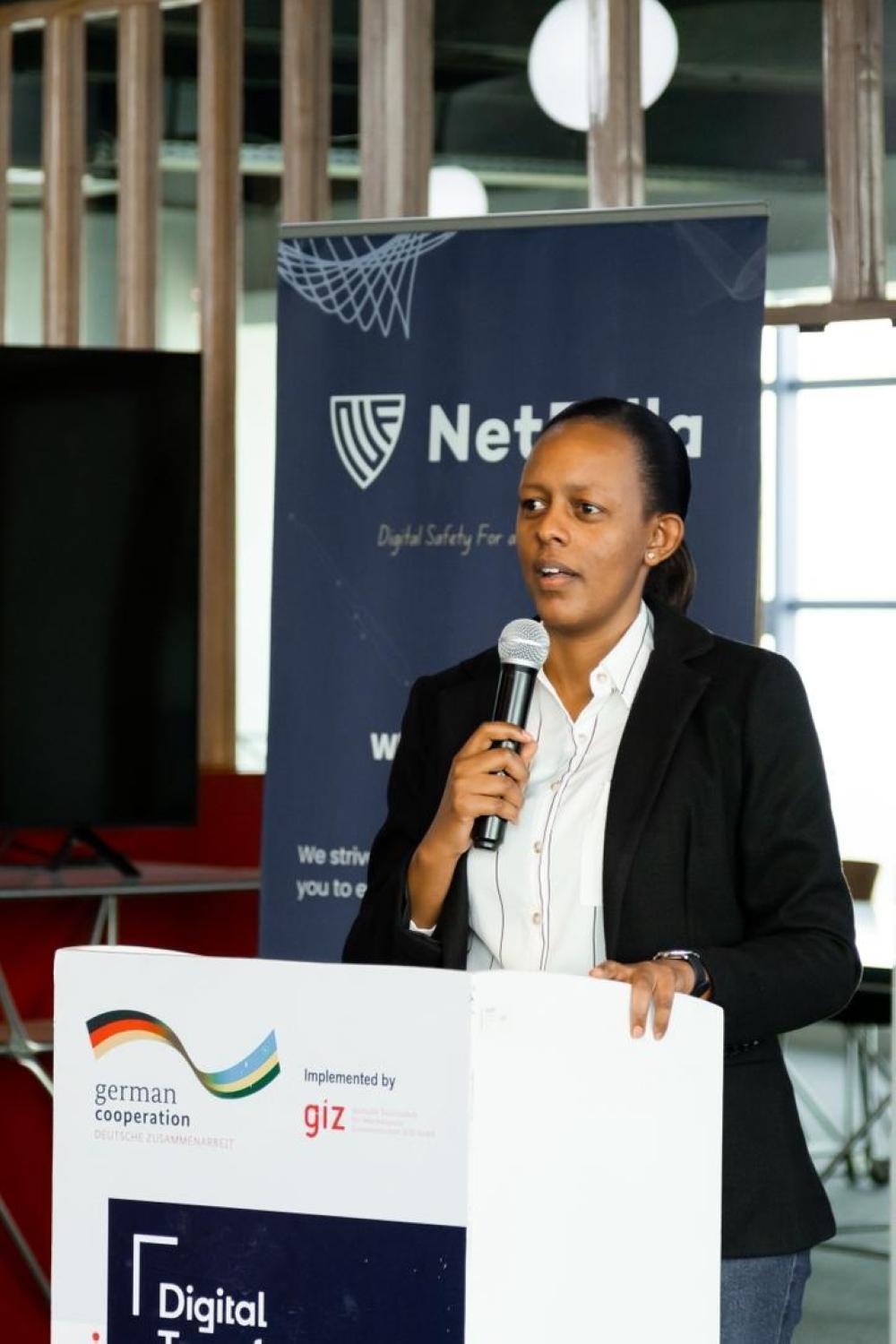Africa-Press – Rwanda. Strengthening Rwanda’s digital ecosystem requires not just robust systems but also awareness, education, and collaboration among citizens and institutions, according to experts in the field.
Experts said this on Friday, November 21, during an event focused on cybersecurity and data protection awareness. According to a new TransUnion report, between February and May, 58 per cent of Rwandans were targeted by digital fraud. Of these, 9 per cent fell victim, while 49 per cent were targeted but managed to avoid being compromised.
The findings raise an urgent question: how can Rwanda protect its citizens and businesses in a rapidly digitising economy?
Sadrah Irasubiza, the Managing Director of NetFella, a cybersecurity consulting firm, said the solution lies in building awareness and capacity among citizens, particularly youth.
“When we target students and schools, we are equipping them with capacity so that they can go ahead and train their families. We are killing a bird with two stones,” he explained.
Irasubiza emphasised that most cyber incidents stem from human mistakes.
“There is a saying that 90 per cent of people are hacked because of their own faults. You may have all these systems that protect you, but imagine they send you a link and you click on it without knowing what happens after. You may think it’s a small thing but you are giving a hacker a 90 per cent chance to compromise you.”
He added that many users underestimate the permanence of their digital footprints.
“You may delete something on your side, but big companies still have it on their servers, and it can be used against you.”
According to Irasubiza, the most common digital threats in Rwanda include phishing, links or documents sent through email, WhatsApp, or SMS promising rewards, and vishing or voice phishing, where attackers pose as service providers to trick victims.
“The key is the mindset; don’t rush. First assess everything before reacting,” he noted.
Legal frameworks, institutional support
For sustainable digital protection, Rwanda strengthened its legal and institutional frameworks. Ghislaine Kayigi, the Chief Cybersecurity Standards Officer at National Cybersecurity Authority (NCSA), said that these measures also help attract investors.
Ghislaine Kayigi, Chief Cybersecurity Standards Officer at the National Cybersecurity Authority (NCSA), speaks during an event on cybersecurity and data protection awareness on Friday, November 21.
“When investors come, they first do due diligence to see what laws the country has that can protect their customers, their business, and their data. One of the key questions that kept coming was: what laws do you have to protect the data of citizens, or even the data of customers we bring into Rwanda?”
Kayigi highlighted NCSA’s work with schools and initiatives like the PICO-CTF, a free computer security competition for students across Africa, to nurture future cybersecurity talent.
“We want to encourage students and young people to venture into cybersecurity. You don’t have to leave your education path whether it’s finance, health, transport, or law. But you can add cybersecurity skills, because we need subject matter experts working with engineers to create relevant security measures.”
“Cybersecurity is not a product. It’s not something you buy one time and it’s done. It’s a process. You need to review, assess, and learn new things all the time,” Kayigi added.
The goal, she said, is to give young people a space to build skills and business ideas in cybersecurity, creating solutions that benefit Rwanda, the region, and the continent.
For More News And Analysis About Rwanda Follow Africa-Press








